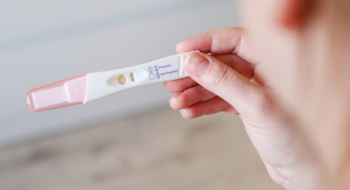More than 6.5 million women in the U.S. have endometriosis, a painful condition that can cause fertility issues and make everyday life a challenge.
Although there is no cure for endometriosis, it is treatable.
Endometriosis is when tissue similar to the inner lining of the uterus (endometrium) grows outside the uterus. As the tissue accumulates, it can cause pelvic pain, irregular menstrual cycles, painful intercourse and lead to difficulty conceiving children, explains Tidelands Health OB-GYN Dr. Monica Selander, who practices at the Georgetown and Holmestown Road locations of Tidelands Health OB/GYN.
“It actually can be present anywhere in the body,” Dr. Selander says. “And it causes pain in the area where it’s located, especially during a woman’s menstrual cycle because the tissue is responding to the hormones released during her cycle.”
Symptoms
Pain is typically the first symptom women notice as the disease begins encroaching on surrounding tissue and organs, creating inflammation and irritation. The amount of endometriosis tissue that’s present doesn’t necessarily correlate to how much pain people feel.
“I’ve seen people’s bellies full of endometriosis, and they had no idea and no pain,” Dr. Selander says. “And I’ve had people with horrible chronic pain, and you get in there and there’s just one little spot.”
Diagnosis
The only way to confirm endometriosis is through surgery or a biopsy. But before surgery, treatment typically involves non-invasive approaches such as prescription anti-inflammatory medications, oral contraceptives or a hormonal IUD to treat pelvic pain and heavy menstrual bleeding.
“If there is a history that suggests it, we will treat the symptoms as if we know it’s endometriosis to see if the patient responds,” Dr. Selander says.
When non-surgical treatments fail or the disorder affects a woman’s ability to become pregnant, surgery may be an option.
The procedure is typically completed laparoscopically, a minimally invasive approach that requires the surgeon to make small incisions in the abdomen to remove the lesions or burn them. At Tidelands Health, our region’s leading health care provider, women have the option to benefit from robotic-assisted surgery for endometriosis.
The approach allows surgeons to perform surgery through small incisions in the body using robotic arms that are fully controlled by the surgeon. It can result in decreased blood loss, faster recoveries, smaller scars and less post-operative pain compared to traditional approaches.
“It’s just better to have a step up on your acuity and precision,” Dr. Selander says.
Tidelands Health offers state-of-the-art robotic-assisted surgical systems at Tidelands Georgetown Memorial Hospital and Tidelands Waccamaw Community Hospital. The technology is used for a variety of procedures, including gynecological, gallbladder and colon procedures.
What causes endometriosis?
The exact cause of the disorder is not exactly known. One theory is that menstrual blood, instead of flowing from the uterus and out through the vagina, flows back through the fallopian tubes into the pelvic cavity, Dr. Selander explains.

Listen in
Listen to this Better Health Podcast as Tidelands Health OB-GYN Dr. Monica Selander discusses robotic-assisted surgery for women's health.
The misplaced endometrial-like tissue grows and thickens as it reacts to hormonal changes during the menstrual cycle. With no way to escape, the tissue becomes trapped in the pelvis and can spread to other parts of the body, including the ovaries, pelvic lining, on the fallopian tubes and in the bowels.
A family history of endometriosis may put you at increased risk for the condition. If you have a close relative with endometriosis, it’s a good idea to discuss your risk with your OB-GYN or other health care provider.
When to see a doctor
Women tend to suffer in silence because many believe painful periods and pain between periods are normal or because they are too embarrassed to discuss painful intercourse with a physician, Dr. Selander says.
“If you’re not sure that what you’re experiencing is normal and your quality of life is affected, see your doctor and ask to be checked,” Dr. Selander says. “The biggest barrier is that it’s such a personal topic people don’t want to ask if it’s normal or not. But just starting the conversation is a way to empower yourself to get the care you need and deserve to feel better.”

Dr. Monica Selander
OB-GYN, Tidelands Health Women's Center
Bio
Tidelands Health OB-GYN Dr. Monica Selander offers care at Tidelands Health Women’s Center.
Learn MoreMedical Education
Medical Education
Education
- Norwich University
- University of New England, College of Osteopathic Medicine
Residency
- Michigan State University
Meet the Expert
Dr. Monica Selander
Tidelands Health OB-GYN Dr. Monica Selander offers care at Tidelands Health Women’s Center.





